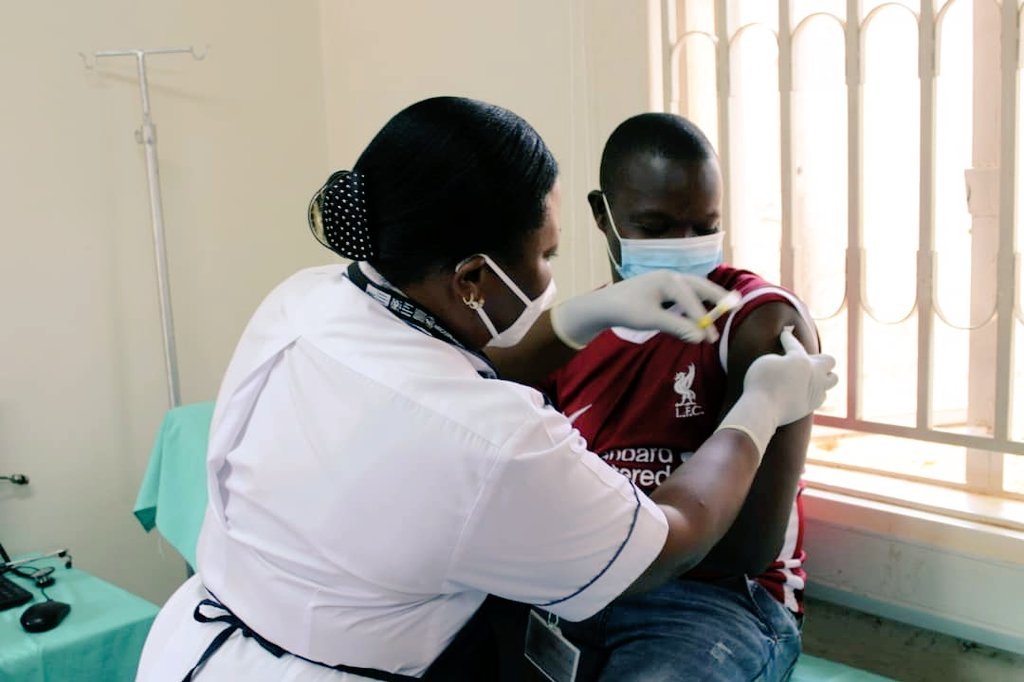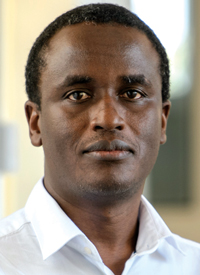Hope for HIV vaccine falters as Africa-led project ends vaccine trial
Colin Stewart is a 45-year journalism veteran living in Southern…
‘Last roll of the dice’ falls short; AIDS experts urge renewed quest for HIV vaccine

An African-led, European-supported HIV prevention study, PrEPVacc, announced today that it is halting its tests of a potential HIV vaccine.
The announcement came at the International Conference on AIDS and STIs in Africa (ICASA 2023) in Zimbabwe.
As recently as August, many people had hoped PrEPVacc’s work would lead to an effective vaccine. CNN reported then:
A novel trial that has been described as “the last roll of the dice” for a generation of HIV vaccines has entered its latter stages.
Called PrEPVacc, the trial is testing two vaccines alongside two forms of pre-exposure prophylaxis (PrEP) to test vaccine efficacy while offering protection to prevent the spread of HIV.
African-led and coordinated out of Entebbe, Uganda, with international support, its success could mark the start of a new phase of vaccine development. Should it fail, it could also see immunologists give up on a generation of vaccines. …
The [now abandoned] hope is that PrEPVacc will succeed where other trials have fallen short – most recently HVTN 702 (dubbed “Uhambo”), halted in February 2020, HVTN 705 (“Imbokodo”), discontinued in 2021 and HVTN 706 (“Mosaico”) in 2023, all of which were found to be safe but ineffective at preventing HIV.

Only one clinical trial, which took place in Thailand with results published in 2009, has been found to show modest effectiveness at preventing HIV infection. The efficacy of that vaccine, RV144, was about 30% (although the findings continue to be debated). For PrEPVacc to be considered a success, either of the two vaccines being tested will need to achieve an efficacy of at least 70%….
Jonathan Weber, lead applicant and coordinator of PrEPVacc, and director of the Imperial College Academic Health Science Centre in London, [described PrEPVacc’s potential vaccines] as “the best we feel, at the moment, that medical science can provide.”
This is the International AIDS Society’s response to the end of the PrEPVacc trial:
6 December 2023 (Geneva, Switzerland) – PrEPVacc announced today that it “has stopped further vaccinations as there is little or no chance of the trial demonstrating vaccine efficacy in preventing HIV acquisition”. Its pre-exposure prophylaxis (PrEP) trial is set to continue.
While IAS – the International AIDS Society – is disappointed at this outcome, we believe that this provides us with lessons to drive HIV vaccine research and development (R&D) with urgency.
“We cannot and will not lose hope that the world will have an effective HIV vaccine that is accessible by all who need it, anywhere,” IAS Executive Director Birgit Poniatowski said. “A vaccine remains one of our most powerful tools to reach and change the lives of vulnerable communities and key populations in the most affected parts of the world.”
PrEPVacc, an African-led, European-supported HIV prevention study, has been running in four sites in Uganda, Tanzania and South Africa since 2018. With 1,513 participants (men and women aged 18-40 years), it has been testing two experimental vaccine combination regimens to protect against acquiring HIV and a new form of PrEP.
The PrEPVacc sites are in eastern and southern Africa, the region most heavily impacted by HIV. It is home to almost 21 million of the 39 million people living with HIV globally: 500,000 people in the region acquired HIV in 2022, and 61% of them were women and girls.

HIV prevention is often approached through a combination of methods, including condoms, antiretroviral therapy (ART) and behavioural interventions. A successful HIV vaccine could provide long-term protection with a single or limited number of doses, simplifying adherence and reducing the need for ongoing interventions.
A vaccine could help reduce the stigma associated with HIV by normalizing prevention practices. Importantly, it could ease the burden on key populations, including gay men and other men who have sex with men criminalized by some of the world’s harshest anti-gay laws in parts of the PrEPVacc study region.
An HIV vaccine could alleviate healthcare costs and contribute to the economic well-being of communities in affected regions. Also, the pursuit of an HIV vaccine drives scientific innovation and contributes to our understanding of the immune system and infectious diseases: a case in point is the rapid development of vaccines for COVID-19, which drew heavily from HIV vaccine research.
At the IAS, we believe that even when efficacy studies have not shown the desired outcomes, they offer valuable lessons and data that researchers can use to refine their approaches. Understanding why certain strategies are unsuccessful is crucial for making informed adjustments and moving us closer to an effective vaccine.
The IAS is committed to ending HIV as a threat to public health and individual well-being, and we call on all stakeholders, including in Europe, to step up HIV vaccine R&D to make that a reality.




